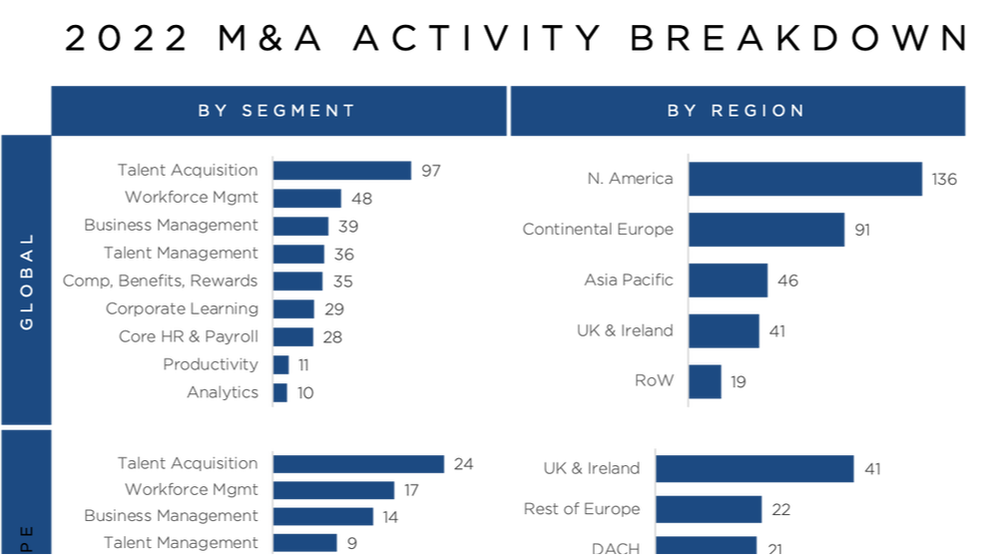|
The macro narrative in 2022 was dominated by high inflation, the possibility of an economic recession, and disrupted asset values, particularly high-valued technology stocks. For HR Tech and Work Tech businesses, this narrative had the most profound impact on capital raising, which saw volumes drop to $2.0bn in Q4, levels last seen in Q2 2020, at the peak of the Covid-19 pandemic. However, total funding in 2022 was $19.4bn – a record amount, eclipsed only by the $46.1bn raised in 2021 and higher than the $12.7bn raised in 2020. M&A volumes remained resilient for most of the year, with the effects of the adverse market sentiment not appearing until Q4, reflecting the slowdown in new deal originations earlier in the year. As we move into 2023, we expect that these themes will continue to affect sentiment in HR Tech and Work Tech. However, their impact will likely change due to the swift tightening of monetary policy in the US and Europe, which has started to affect a range of areas in the economy and capital markets, including inflation, consumption, employment, and business investment. If inflation in the US and Europe continues to decline without a sharp increase in unemployment, this would imply a higher probability of a much-desired soft landing–a scenario that many thought very unlikely just a few months ago. From an M&A perspective, while average and median valuations have contracted, this appears to be affecting deal sentiment only temporarily. Buyers remain highly active and best-in-class assets still command valuations broadly in line with those achieved before the recent correction. Investment in HR Tech and Work Tech is likely to recover more gradually, with activity remaining subdued particularly in 1H. Nonetheless, the sector’s structural tailwinds coupled with historical levels of dry powder should prompt a speedy rebound. To receive M&A and capital raising insights, deal announcements, research reports and news from Venero Capital Advisors, register here.
Comments are closed.
|
|
Venero Capital Advisors offers tailored and independent investment banking services to businesses operating in HR Tech and the Future of Work sector. Our client relationships are built and carefully maintained on trust, discretion and dedication. We combine in-depth industry expertise with market leading advisory skills – delivered within a highly confidential and unconflicted framework.
Venero Capital Advisors Ltd. is authorised and regulated by the Financial Conduct Authority (the "FCA"), appearing on the FCA register under firm reference number 795179. © Copyright 2023 Venero Capital Advisors Ltd. |


 RSS Feed
RSS Feed